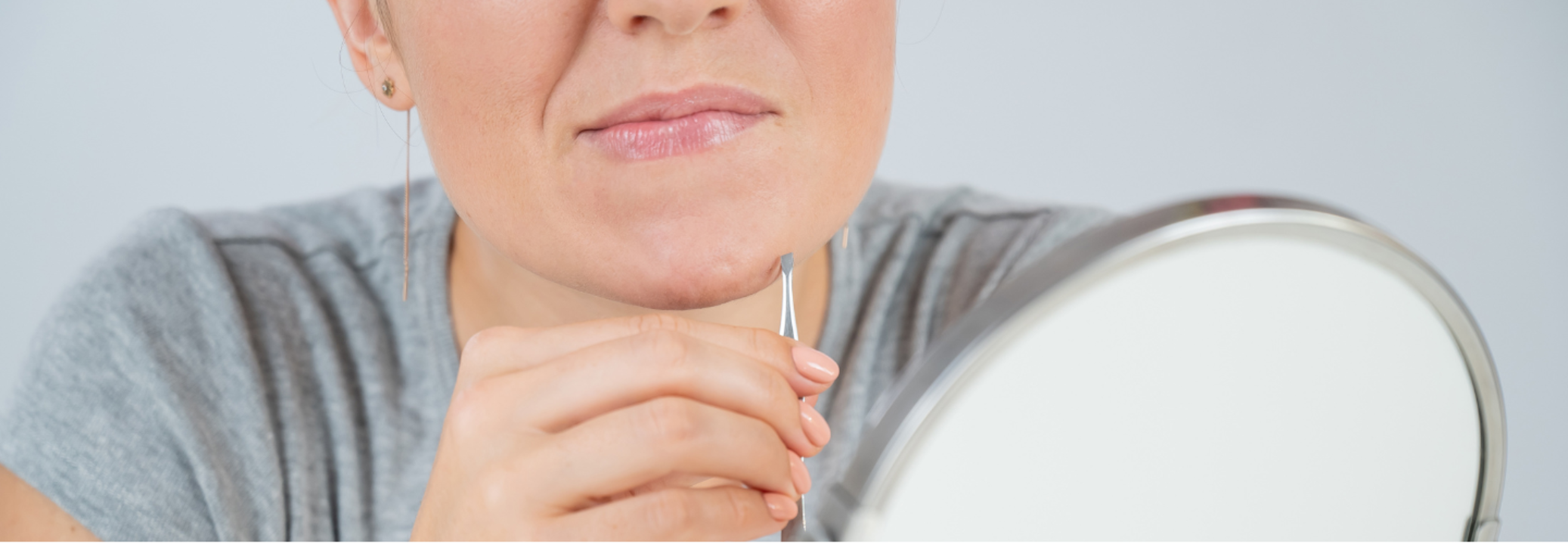Got Unwanted Chin Hair? Here’s What Your Body Might Be Trying To Tell You

SummaryFinding an unexpected chin hair can be an uncomfortable experience for many women. While it is common to hair chin hair, excessive or coarse hair growth is a symbol of hormonal imbalance.
End of Article
